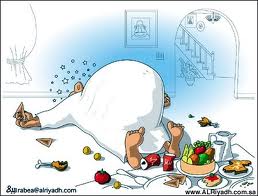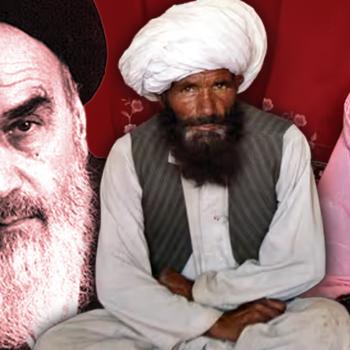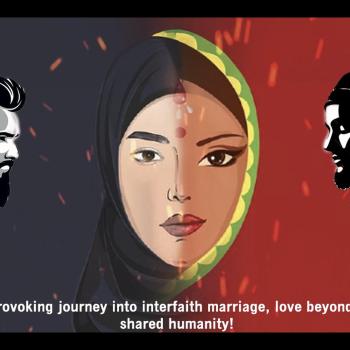Most Muslims, when asked about the month of Ramadan, will usually speak to the spiritual benefits to be attained: getting closer to God, cleansing the soul, sharing time with loved ones, etc. These are all desirable and viable outcomes of observing the holiest month for Muslims. Indeed, Ramadan is about instilling God-consciousness (taqwa in Arabic) in the believer – an annual exercise reminding us to play nice and be good because God is all-aware of what we do.
Muslims throughout the world strive to reach this goal through patient devotion and worship practices. However, the road to enlightenment during this month-long journey isn’t always paved for safe travel. Very few Muslims will discuss the less savory side effects of observing Ramadan. Let me clue you in on a few.
Bad Breath and Hungry Eyes
Not being able to place anything in your mouth for 12 or more hours doesn’t exactly keep your breath fresh. On top of that, imagine the last thing you had in your mouth was some greasy fried amorphous blob, a glass of milk, or an onion stuffed with garlic. (OK, so no one would actually eat the last one, but that’s what most Indo-Pakistani Muslims’ houses smell like.) By not introducing new flavors and scents into the stale warmth of your mouth, a stagnant, toxic stank incubates within your jowls, creating a vapor of lethal toxicity that when released is capable of singeing the eyebrows of innocent bystanders.
If you’re around a fasting Muslim, keep your distance. As for hungry eyes, by no means am I referring to Eric Carmen’s hit from the ‘80’s. (Think Dirty Dancing. Actually, if you’re a fasting Muslim, don’t think of that at all.) I refer to that mile-long, off in the distance, unblinking stare that spontaneously appears on the face of a fasting Muslim. If you witness this, that means the person has stopped listening to you and is longing for the taste of anything – fantasizing about feta cheese and dark chocolate, together. In a bowl of mustard. With pickles.
Zombification
Zombie: A being of the night bent on feeding its most primal hunger. A fasting Muslim: A being of the night heaven-bent on feeding its most primal hunger.
In other words, try not eating all day, stuffing yourself late at night, standing and prostrating in prayer for an hour or so afterward, waking up at 4:15 a.m. to stuff food in your face before the morning prayer, laying down afterward for just enough time to get extremely tired but not to fall asleep, and then getting up and ready for work to do your job without eating or drinking. Now do that for 30 days.
One of the early stages of the zombification process is the morphing into a basic-needs creature. For instance, during Ramadan I give up all of my hopes and aspirations. Forget writing that great movie script, catching up with old friends, negotiating my personal debt ceiling, and planning my future endeavors. All I want to do is eat and sleep. I’m like a grown baby. With a beard. And heightened sexual desires.
I can’t focus on anything. Even the most mundane aspects of life like watching a cow graze, the rain fall, and a woman walk by make me hungry, tired, and horny – and not exactly in that order. Normally, a Muslim man is directed to “lower his gaze” in the presence of women as to not ogle and objectify them. So I lower my gaze. But even a woman’s toes can get me going during Ramadan. I basically am a walking deprivation chamber with my need for food, sleep, and sex amplified.
Even then, sexual drive is in a distant third place. If I were forced to choose between nourishing, mouth-watering food, reenergizing, peaceful sleep and a romp in the bed with the wifey; I’d immediately drop number three as an option every time. (I would like to apologize to my future wife. If you’re reading this, stop retro-stalking me and go make me a sandwich. Kidding. Kidding. No don’t cry. No, I do care about you. I don’t hate your mother. Look, we’ll talk about this later.) In my hierarchy of needs, food and sleep reign supreme!
Praying in Odd Places
Admittedly, this is nothing new. A lot of Muslims will stop what they’re doing at any point in the day to make their prayers on time, wherever they are. But some of us are more inclined to do so, on the spot during Ramadan. Problem is, we don’t always plan accordingly. (We haven’t eaten all day, for God’s sake. No, literally, for God’s sake.)
For example, last Ramadan, my close friend and I prayed Maghreb (the prayer right after sunset) in the concourse of Lincoln Financial Field in Philadelphia before a U.S.-Mexico soccer game. There were at least 20,000 people swarming around us. Nationalistic chants were drowned out by loud club music, cheering fans, and men on microphones trying to coax passersby — in Spanish — to stop at their booth. Add in a handful of people running around in Mexican wrestling masks, various beautiful women who could not afford to buy enough clothing to cover their bodies, and concrete stained by years of spit, beer, and blood — and you have the hardest place to pray this side of a Tea Party swinger’s brothel. (Not that I’ve done that, plan to do that, or that one even exists.)
Social Awkwardness
Most of us (in the U.S.) work and share a large portion of our day with non-Muslims. When it comes to fasting Muslims in the workplace, two particularly annoying types ruin it for the rest of us. On one end of the spectrum, there’s the person who lets all non-Muslims around her know she is fasting at every opportune moment. On the other end is the one who goes to extraordinary lengths to avoid explaining the situation to her co-workers.
The former is a jerk, a Ramadan Nazi. She wants everyone to know the struggle she goes through; mentions that although a sip of this or a taste of that is all she wants, but God won’t let her do so. She uses her arsenal of eye-rolls, impatient sighs, and a host of other nonverbal tactics to enforce a no-food zone in her immediate proximity, sanctioning others from eating lunch or enjoying a drink in comfort.
The latter, usually scared of being judged by others, tries to fast on the down-low — a Ramadan Ninja. This timid, almost-embarrassed-to-be-Muslim faster tends to come up with unrelated reasons for why she’s not eating: I’m not hungry, I don’t have money on me, I’m on a diet, etc.
This person avoids the Ramadan conversation as much as she avoids food during Ramadan. By day 11, she’s run out of good excuses and paints herself into a corner with more intricate, complicated lies. By day 17, she has ringworm. By day 22, she’s trying to make weight for an MMA bout against Cristiane “Cyborg” Santos. By day 29, no one cares that she’s not eating – and although her gums are bleeding, she’s smiling inside for making it through another Ramadan under the radar.
Both types make Ramadan socially awkward for everyone else around them.
Not eating all day and having your stomach shrink in size is usually an effective way to shed a few pounds. Yet, many Muslims gain weight during Ramadan. Why? We become fat morons who stuff our faces senseless with the unhealthiest foods possible. There’s no better way to get in touch with your spiritual side then by eating yourself into a carb coma. Everything we consume is fried, breaded, greasy, or abnormally sweet. The craving for empty calories and saturated fats infects your decision-making process.
You start making odd demands: “I want French fries ON my slice of pizza.” You get creative in how you can cram the most food inside of you: “If I let the ice cream melt, I can use it as a drink to wash down my cheesesteak!”
It’s supposed to be a month of simplicity. The traditional food for breaking one’s fast is a date. It’s a sweet, refreshing fruit that is light, yet filling. But when you deep-fry it and cover it in bleu cheese? Now we’re talking!
Dealing With People You Hate, but Must Socialize With
During Ramadan, people look forward to breaking fast with family and members of the community, thereby sharing the blessed month with those around them. Like the six-year-old who keeps running around the masjid like a rabid dog, or that one uncle who drops pieces of his samosa and rice all over the masjid floor that everyone will be praying on and refuses to acknowledge his littering. (Ever had a cold piece of greasy, orange rice embedded in your forehead after getting up from praying? Yeah, it’s not pleasant.)
Don’t forget that aunty with the bad breath who keeps counseling you on why you chose the wrong profession and should have been a doctor, or that one dude who took way too many kebobs and naan from the tray, forcing everyone after him to ration out their dinner. These are the people you avoid like the plague during every other month, yet during Ramadan you are forced to peacefully share the same space as them.
But Here’s the Silver Lining
Of course, in the grand scheme of things, the above inconveniences are miniscule obstacles when compared to the vast gains in spirit, brotherhood, and shared understanding that most Muslims reach at the end of the month. It is a beautiful time for reflection, prayer, and communal outreach. But if you approach a Muslim to ask him about Ramadan, and he explains it as a calming spiritual retreat into one’s self, his bad breath, hungry eyes, zombie posture, and ease of irritability will paint the picture a little more accurately.
And if you’re a woman, for God’s sake, please make sure you’re wearing socks.
Obaid H. Siddiqui is a writer and journalist based in Philadelphia. He is a contributor to the anthology “All-American: 45 American Men on Being Muslim.” Photo courtesy of Alriyadh.com
This piece is part of our ongoing series on Ramadan, featuring reflections, stories, and articles from Muslims and non-Muslims on their Ramadan experiences. Keep checking altmuslim for new pieces throughout Ramadan.


















